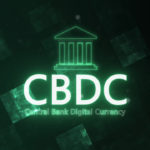Introduction
Central Bank Digital Currency (CBDC) has become a topic of intense discussion and debate. While some view it as a promising solution to existing banking and stimulus check delivery issues, others express concerns about granting more power to economic central planners. In this article, we will delve into the world of CBDC, examining its definition, global adoption rates, pros, cons, and the underlying implications for personal privacy and individual economic freedom.
What is CBDC? An Introduction to Central Bank Digital Currency
CBDC can be described as a government-controlled and regulated form of cryptocurrency. Unlike decentralised cryptocurrencies like Bitcoin, CBDC is centralised, allowing authorities to exert influence and oversight. Its popularity has surged globally, with 114 countries, representing 95% of global GDP, exploring CBDC implementation. Notably, 11 countries have already launched their own CBDC, with an additional 60 countries in advanced stages of development.
Pros and Cons: The Divisive Nature of CBDC
Proponents of CBDC highlight its potential benefits, such as increased payment efficiency, improved financial services, enhanced international transactions, and reduced transaction costs, which may particularly benefit lower-income households. However, critics raise valid concerns about potential drawbacks, including destabilising the current financial system, diminishing the effectiveness of monetary policies, operational difficulties, cyber-security risks, and the loss of transactional anonymity.
Privacy Concerns: The Impact of CBDC on Personal Transactions
One of the most pressing issues surrounding CBDC is the loss of transactional anonymity. CBDC systems enable governments to track and monitor individuals’ purchasing habits and economic activities. This level of surveillance raises concerns about privacy infringement and the potential misuse of personal data. Furthermore, the loss of transactional anonymity can have far-reaching implications for personal freedom and the ability to engage in financial transactions without undue scrutiny.
Control and Influence: Who Supports and Opposes CBDC?
Support for CBDC primarily comes from established financial institutions, including top banks and government authorities. These entities favour CBDC due to the control and regulation it provides, allowing for greater influence over the economy. On the other hand, individuals who value personal autonomy, free-thinking, and entrepreneurship tend to be sceptical of CBDC. They are wary of granting more power to central planners and prefer to make their own economic decisions.
The Global Landscape: CBDC Adoption and Government Influence
CBDC adoption is gaining momentum globally, with G7 economies and 18 G20 countries actively exploring its implementation. China’s CBDC pilot is set to be rolled out nationwide, further solidifying the trend. The push for CBDC demonstrates a significant investment of time and resources by governments worldwide. However, it is crucial to analyse the implications of central bank control and the potential risks associated with overreliance on CBDC.
Final Thoughts
The debate surrounding CBDC centres on the balance between convenience, economic control, and personal freedom. While proponents argue that CBDC can address current financial system inefficiencies and offer benefits such as increased transaction efficiency and lower costs, critics raise concerns about privacy invasion, government overreach, and the potential for abuse of power. As CBDC continues to be developed and implemented worldwide, it is essential for individuals to critically evaluate the implications and potential consequences for personal autonomy and economic freedom.






